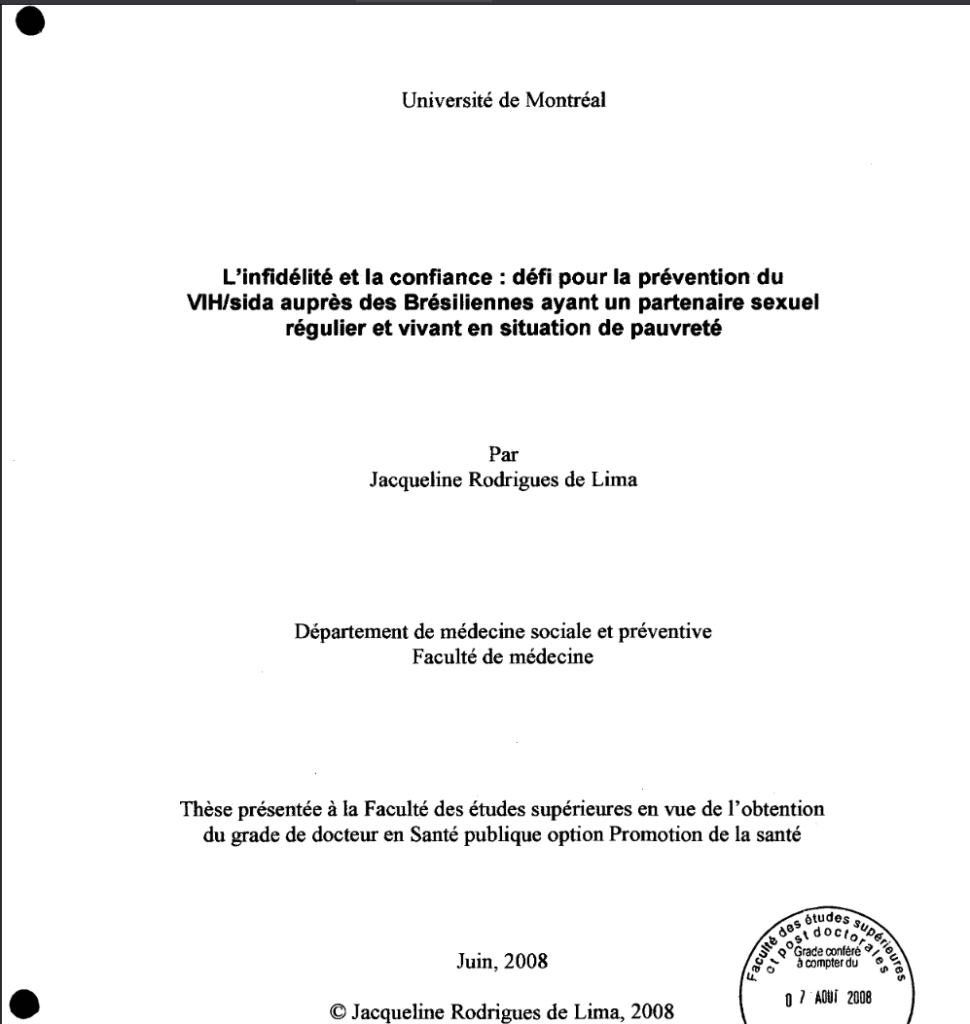Currently, Brazilian women are mainly contaminated by HIV/AIDS in the context of heterosexual relationships. Among them, women who have a stable sexual partner are the ones at greater risk because they are not targeted by intervention programs. This qualitative-feminist study is based on the social critical paradigm and was undertaken in Goiania, Brazil, with women who live in poverty with a stable sexual partner. The objective of the study was to explore how these women perceive and manage their potential risk in relation to HIV/AIDS, as well as to explore with them strategies they could develop to protect themselves from this disease. Data was collected through six focus groups and eleven individual interviews. The study results suggest that risk perception and management emerge through a complex structure, built inside the couple's life and strongly influenced by social norms associated with gender roles. According to the participants, HTV risk is related to the infidelity of a women's stable sexual partner. Within the context of their relationships, trust becomes a strategy to manage risk. Trust has many forms and each woman may employ several types of trust as she assesses the quality of her relationship. Another element to be considered is that women do not want to use condoms perpetually, but even if they propose it to their partners, it is the partner who definitely has the decisional power. The collective experience developed by some participants (proposed condom utilization) helped condom-use negotiation with some partners. This thesis demonstrates that women have the potential to collectively identify their problems and to develop their strategies to promote changes in their private and community lives. Therefore, HIV/AIDS prevention among women living in poverty can be portrayed as dependent upon the evolution of Brazilian social, economic, educational, and political structures which perpetuate inequities at the core of society and also between men and women. Finally, this thesis suggests the importance of adopting participatory and gender sensitive approaches that favour the construction of prevention strategies coherently articulated to particular communities.

